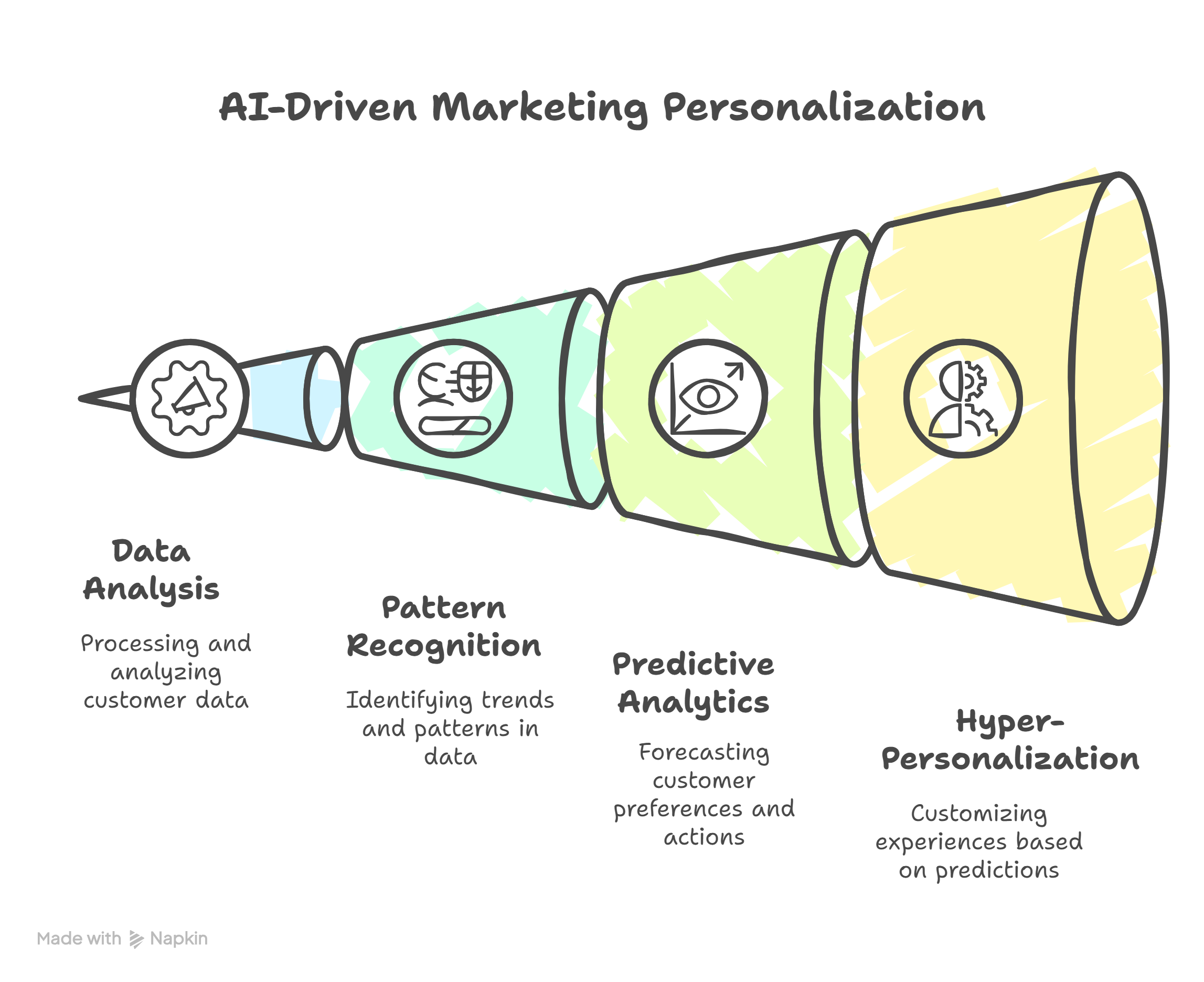Introduction to Artificial Intelligence (AI) in Marketing
Artificial Intelligence (AI) in marketing involves using computer systems and algorithms to perform tasks that typically require human intelligence, applied specifically to marketing activities. Think of it as teaching computers to analyze data, make predictions, understand language, and make decisions to improve marketing efforts.
Common Applications of AI in Marketing
AI is being used in many ways to make marketing smarter and more effective:
- Predictive Analytics: Analyzing past customer data to predict future behaviors, such as which customers are likely to buy, which might stop being customers (churn), or what products they might be interested in next.
- Hyper-Personalization: Going beyond basic personalization (like using a name) to tailor website content, product recommendations, and email offers to an individual's specific, real-time behavior and predicted interests.
- Chatbots & Conversational AI: Using AI-powered bots (like website chat assistants or social media responders) to handle customer inquiries, provide support, qualify leads, and guide users 24/7.
- Programmatic Advertising: Automating the buying and selling of online ads, using AI algorithms to make real-time bidding decisions to show ads to the most relevant audiences at the optimal time and price.
- Sentiment Analysis: Analyzing customer reviews, social media comments, and survey responses to automatically understand the overall feeling (positive, negative, neutral) towards a brand or product.
- Natural Language Processing (NLP): Enabling computers to understand and interpret human language, used in analyzing customer feedback, understanding search queries, and powering chatbots.
- Dynamic Pricing: Automatically adjusting prices for products or services based on real-time supply, demand, competitor pricing, and customer behavior data.
- Content Generation Assistance: Using AI tools to help generate ideas, draft copy for emails or ads, or even create basic marketing content.
Purpose of Using AI in Marketing
Marketers leverage AI to:
- Gain Deeper Customer Insights: Uncover patterns and trends in vast amounts of data that humans might miss.
- Automate Complex Decisions: Let algorithms handle tasks like ad bidding or lead scoring, freeing up human marketers for strategy.
- Enhance Prediction Accuracy: Make more reliable forecasts about customer behavior and campaign outcomes.
- Personalize at Scale: Deliver truly individual experiences to millions of customers simultaneously.
- Optimize Campaigns in Real-Time: Make instant adjustments to campaigns based on live performance data.
Relatable Example:
Think about your experience on Netflix or Spotify:
- Without AI: You might see generic categories like "Comedy" or "Pop Music."
-
With AI:
- The platform analyzes your specific viewing/listening history, what you've liked, skipped, or replayed (
Data Analysis). - It compares your behavior to millions of other users with similar tastes (
Pattern Recognition). - Based on this, it predicts other movies, shows, or songs you'll likely enjoy and creates personalized recommendations just for you ("Because you watched X," "Your Daily Mix") (
Predictive Analytics,Hyper-Personalization). - It might even tailor the artwork shown for a movie based on what actors or genres you respond to (
Dynamic Content).
- The platform analyzes your specific viewing/listening history, what you've liked, skipped, or replayed (
This level of personalized recommendation, constantly learning and adapting, is powered by AI working behind the scenes to make your experience more engaging. AI is a key driver behind advanced analytics, enabling sophisticated personalization and automated decision-making in modern marketing.


No Comments